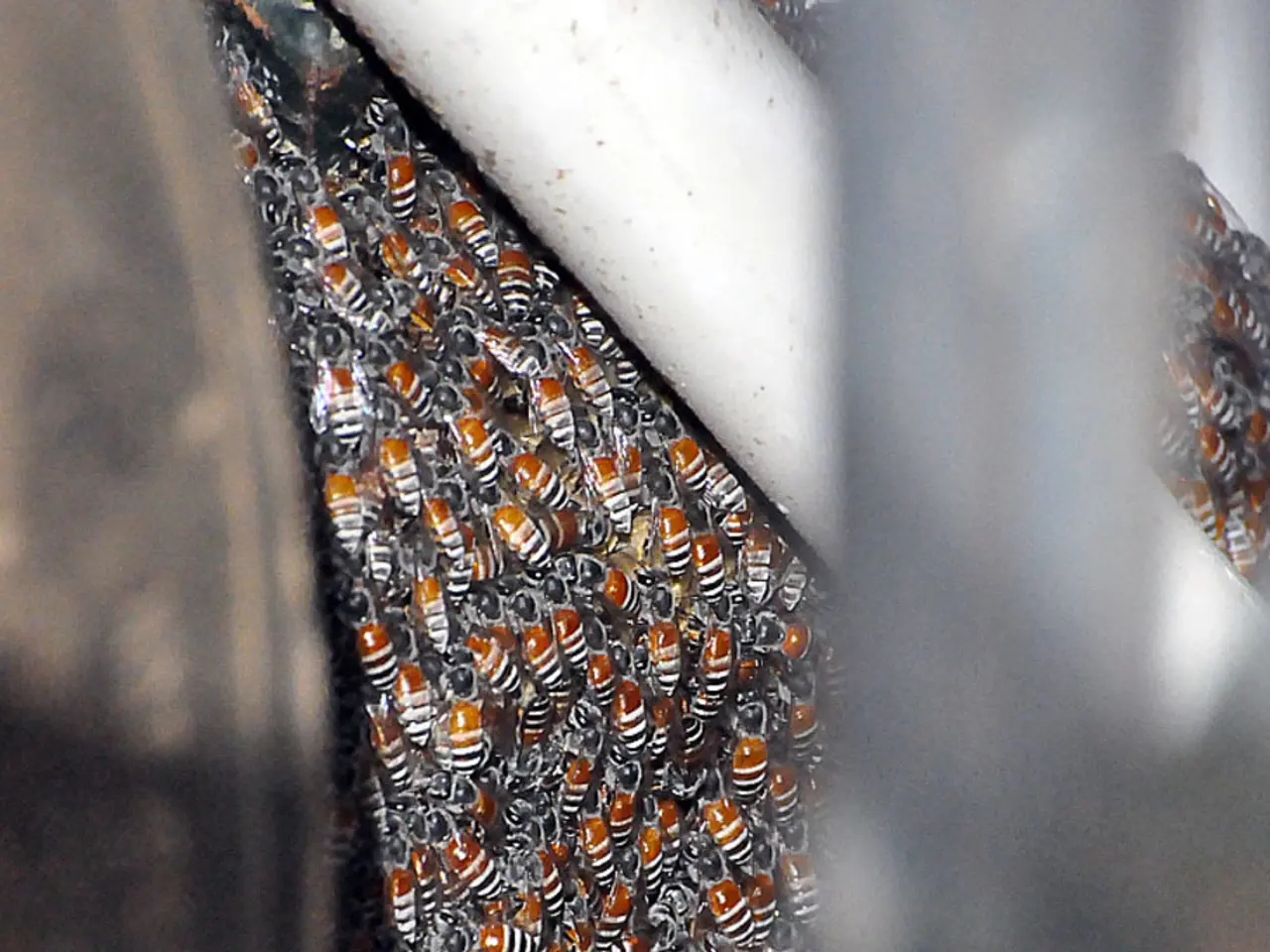Celebrating the Significance of the Busiest Insect on Earth: Honey Bee Day Focus
Celebrating World Honey Bee Day: A Global Effort to Protect Pollinators
World Honey Bee Day, celebrated annually on the third Saturday of August, is a significant event that highlights the importance of honey bees and other pollinators in our ecosystems, food production, and biodiversity. This day encourages people from all over the world to learn, engage, and take action to support these essential creatures.
The primary purpose of World Honey Bee Day is to educate the public about the vital role honey bees play as pollinators. They contribute to pollinating about 75% of the world’s flowering plants and around 35% of global crops, making them indispensable for food security and environmental health [1][2]. However, honey bees face numerous threats such as habitat loss, pesticide use, climate change, diseases, and invasive species [3].
Typical activities associated with World Honey Bee Day include educational events and awareness campaigns, bee-focused outdoor activities, meet-and-greets with beekeepers, promotions of pollinator-friendly practices, support for local honey production, conservation and sustainability forums, and honey-tasting events [1][2][5]. These activities aim to engage, educate, and inspire individuals to take action for honey bee conservation.
Community garden initiatives on World Honey Bee Day encourage planting pollinator-friendly flowers, herbs, and shrubs in neighborhoods. This practice helps create habitats free from pesticides and reduces chemical use in gardens, benefiting not just honey bees but other pollinators as well [1][3].
World Honey Bee Day also emphasizes the need for honey bee preservation and encourages individuals to engage with policymakers and advocate for policies that protect honey bees and their habitats. The day was first initiated in 2009 by beekeepers, educators, and honey enthusiasts in the U.S. and has since gained attention and participation from bee lovers, environmentalists, and communities across different regions, including Canada, the United Kingdom, Australia, India, China, and others [4].
Without honey bees, agricultural systems would suffer, leading to lower crop yields, less biodiversity, and possible food shortages. Honey, made by honey bees, is a treasured natural product for its sweet flavor, therapeutic benefits, and versatility in cooking. The presence of honey bees in an area indicates a floral resource-rich area with low levels of harmful pollutants [5].
Art exhibitions and competitions centered around honey bees and their environment showcase their significance in the natural world. These events not only educate the public but also celebrate the beauty and complexity of these industrious insects [2].
In conclusion, World Honey Bee Day is a global celebration that promotes the well-being and understanding of honey bees. By participating in events, activities, and educational programs, individuals can contribute to honey bee conservation and ensure the continued prosperity of our planet's food systems and ecosystems.
- To support and educate individuals about honey bees' crucial role in news events and global sustainability, various awareness campaigns and photography exhibits related to environmental science and health-and-wellness are organized on World Honey Bee Day.
- In addition to educational events, sports tournaments and fitness-and-exercise challenges may also be organized to emphasize the importance of adopting pollinator-friendly practices in lifestyle and wellness routines.
- The technology sector can also lend a hand to the cause by creating apps and digital tools that encourage people to track their personal impact on pollinator populations and to learn about local beekeepers and sustainable farming practices.
- To ensure a promising future for our children and the next generation, educational-and-self-development programs like workshops, online courses, and seminars on the importance of plants, flowers, and pollinators in science and art could also be held on World Honey Bee Day.
- Moreover, finance institutions can support community efforts in promoting environmental science and honey bee conservation by allocating funds for programs that help maintain pollinator habitats, research, and education.
- Fashion designers might express their support for World Honey Bee Day by creating limited-edition collections inspired by flowers, bees, and the natural environment, thus promoting an awareness of the need for environmental conservation and sustainability.
- For those interested in expanding their knowledge on honey bees, there could be book clubs, webinars, or podcasts focusing on educational resources, documentaries, and beekeeping memoirs to further deepen understanding of this fascinating industry.
- Local health-and-wellness centers could offer classes and workshops, introducing the beneficial effects of honey in fitness-and-exercise routines, as well as its uses in beauty and skincare products.
- Lastly, on World Honey Bee Day, technology and media companies can collaborate to produce, distribute, or share stories that encourage individuals to take action for honey bee conservation, bringing attention to the importance of community, science, and honey bees in our lives.




